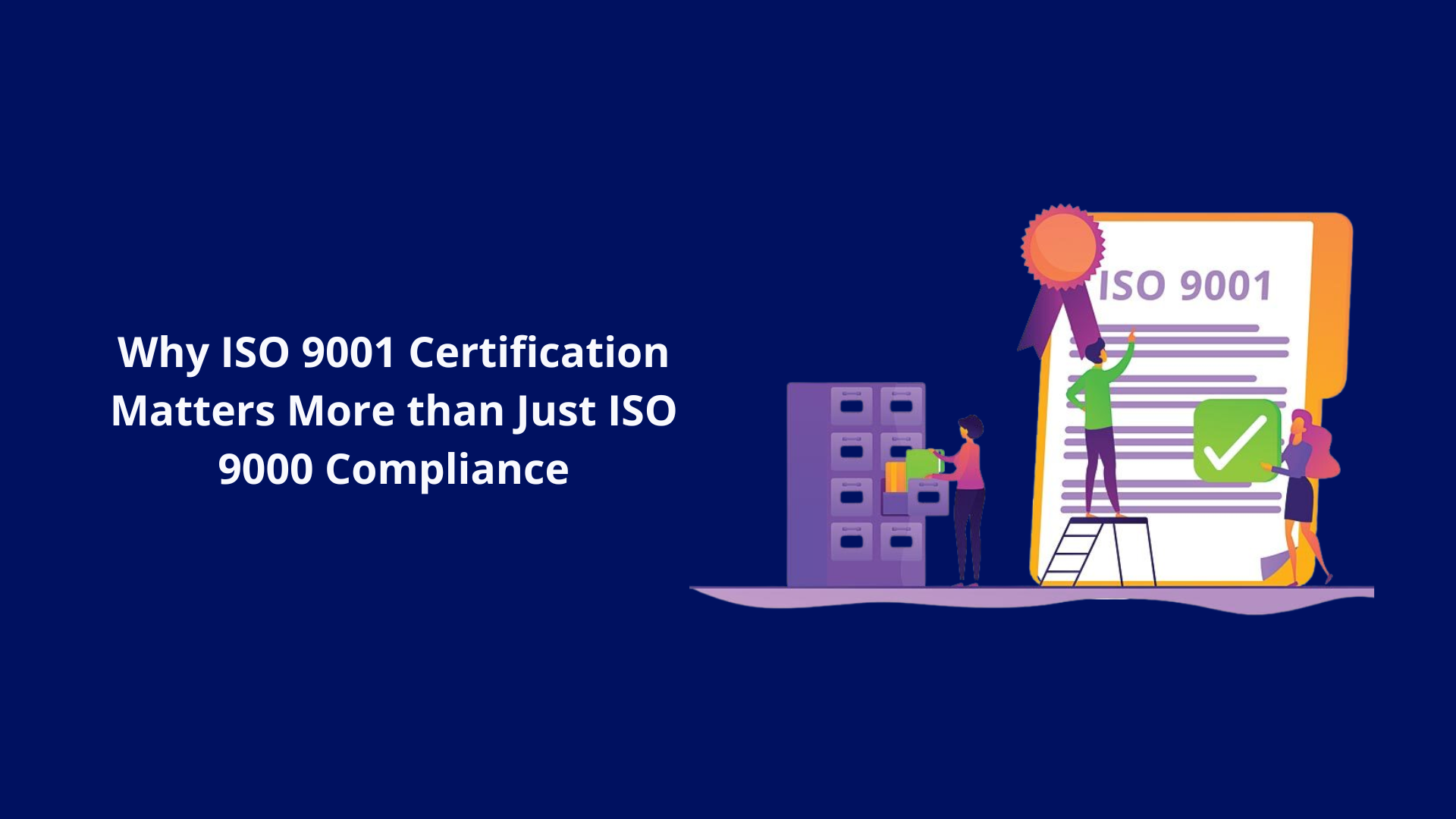Long a pillar of organisations aiming to guarantee constant product and service quality, the ISO 9000 set of standards. But among this group, ISO 9001 certification is a noteworthy accomplishment with much greater value than merely adhering to ISO 9000 standards. An organization’s dedication to fulfilling standards and actively and continually improving its procedures and operations is demonstrated by ISO 9001 accreditation. This blog explores why ISO 9001 certification is more significant than merely adhering to ISO 9000 standards, emphasising the value of ISO 9001 Training and the differences between ISO 9000 Vs ISO 9001.
Table of contents
- ISO 9000 vs. ISO 9001: Understanding the Difference
- ISO 9001 Certification: A Comprehensive Approach
- Focus on Continuous Improvement
- Enhanced Credibility and Trust
- Improved Operational Efficiency
- Customer Satisfaction as a Priority
- ISO 9001 Training: The Key to Success
- A Pathway to Excellence
- Conclusion
ISO 9000 vs. ISO 9001: Understanding the Difference
Although ISO 9001 and ISO 9000 are frequently used interchangeably, they each refer to different elements of quality management. While ISO 9000 describes the foundations of quality management systems, ISO 9001 specifies the criteria organisations must satisfy to be certified. In essence, ISO 9000 provides a base, and ISO 9001 adds concrete certification requirements to that base.
ISO 9001 Certification: A Comprehensive Approach
The ISO 9001 certification process is a thorough commitment to excellence, not just a box-ticking exercise. To be certified, organisations must commit to several fundamental principles, including customer focus, leadership, employee engagement, process approach, improvement, evidence-based decision-making, and relationship management. The distinction between ISO 9001 certification and simple ISO 9000 compliance is the holistic approach to quality management.
Focus on Continuous Improvement
The emphasis on ongoing improvement is one of the fundamental principles of ISO 9001. Organisations working for ISO 9001 certification are not satisfied with simply fulfilling a list of criteria. Instead, they are committed to spotting improvement possibilities, streamlining procedures, and ensuring quality management is an ongoing project. Beyond simple compliance, ISO 9001 promotes a culture of innovation and progress.
Enhanced Credibility and Trust
The ISO 9001 accreditation gives an organization’s claims of quality credence. It reassures customers, stakeholders, and partners that the business is committed to providing dependable and consistent goods and services. The accreditation fosters trust and confidence among customers and business partners, acting as a potent differentiator in a cutthroat industry.
Improved Operational Efficiency
Setting up well-defined processes, distinct roles and duties, and efficient documentation are requirements for ISO 9001 certification. Together, these components help to increase operational effectiveness. Organisations may cut waste, boost productivity, and save money by optimising workflows, reducing errors, and streamlining operations.
Customer Satisfaction as a Priority
The ISO 9001 standard focuses a lot of emphasis on client satisfaction. According to the framework, organisations must comprehend client needs, keep an eye on feedback, and take proactive steps to resolve any issues or complaints. Through favourable word-of-mouth recommendations, this customer-centric strategy increases client loyalty and propels corporate growth.
ISO 9001 Training: The Key to Success
A well-trained staff knowledgeable about the complexities of the standard and the subtleties of quality management is necessary to obtain ISO 9001 certification. The knowledge and abilities needed to implement, maintain, and enhance a quality management system by ISO 9001 regulations are provided to staff members through ISO 9001 training.
Conclusion
A commitment to excellence that goes above and beyond the standards of ISO 9000 compliance is indicated by ISO 9001 accreditation. Organisations can profit from ISO 9001 certification by embracing a culture of continuous improvement, concentrating on customer happiness, and maximising operational efficiency. The ISO 9001 certification can lead to organisational growth, increased credibility, and ongoing success in the constantly changing field of quality management with the correct training and a commitment to quality.





